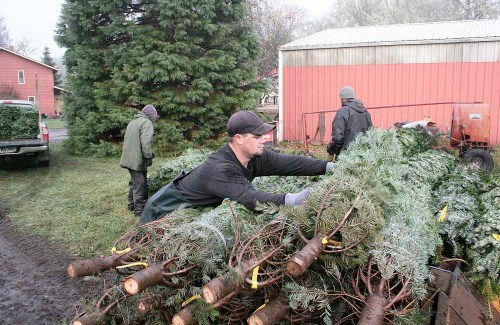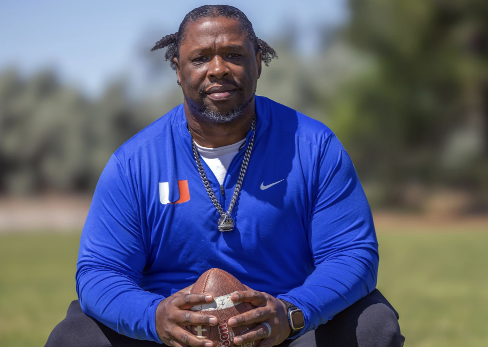Pandemic may boost demand for real Christmas trees
Published 7:00 am Sunday, October 11, 2020

- Workers load Christmas trees onto a pallet at Sunrise Tree Farm near Philomath. A new survey reveals the coronavirus pandemic may inspire more consumers to buy real trees.
SALEM — Though the coronavirus outbreak is expected to disrupt some aspects of the holiday season, that’s not necessarily a bad omen for Christmas tree farmers.
The vast majority of consumers — 92% — expect the pandemic will change this year’s Christmas celebrations, according to a survey commissioned by the Christmas Tree Promotion Board.
However, the survey has found that consumers are now more likely to appreciate “simple pleasures” and focus on creating new traditions.
Among consumers who expect the pandemic to alter their celebrations, 39% say they’re more likely to buy a real Christmas tree, compared with 21% who say they’re less likely to do so.
“Clearly, the thought process is leaning toward experience, toward making the holiday a bright part of the year,” said Marsha Gray, executive director of the promotion board, which raises funds for industry research and promotions.
The expectation of stronger demand for real Christmas trees isn’t entirely surprising, as a similar phenomenon has occurred during past disasters, Gray said.
“Consumers tend to turn toward things that make them feel good and happy,” she said.
The board generally emphasizes the opportunity to create memories, but has amended that message by presenting real Christmas trees as a way to finish a bad year with good memories.
“Things haven’t been so hot this year, so let’s make them better at the end,” Gray said.
The survey revealed that real Christmas trees have some advantages over artificial ones during the pandemic.
About 76% of consumers described real trees as an experience rather than a product, while only 49% described artificial trees this way.
Real trees were also described as “special” by 76% of survey respondents compared to 46% for artificial trees.
Consumers see real Christmas trees as an opportunity to “salvage the year” and make their homes more comfortable, said Ryan Tandler, vice president of the Fleishman Hillard public relations firm, which designed the survey.
“What we see is people asking themselves how to have positive experiences close to home,” Tandler said. “People were fairly unanimous in saying, ‘Because 2020 was not a good year, I want to do something special.’”
About 79% of respondents said they wanted this Christmas to be more special than normal and 82% said they wanted to make it more memorable.
The pandemic convinced 62% of respondents to reconsider what they consider “inconvenient” and 72% want this year’s Christmas to be more “hands-on,” both of which bode well for real trees, Tandler said.
Activities, such as gardening and baking, which many previously saw as inconvenient are now more likely to be viewed as enjoyable, he said.
A similar dynamic may also inspire people to pick out and set up a real Christmas tree, Tandler said. “That work is very rewarding.”
Even so, the real Christmas tree industry can’t afford to rest on its laurels and assume many consumers will abandon their artificial trees, he said.
“There’s always a difference between intentions and behaviors,” Tandler said.
The industry should try to dispel the notion that real Christmas trees require a lot of expertise and added work, he said.
Many consumers have “already sold themselves a real tree in their minds,” so the industry should try to remove the low-level knowledge barriers that may impede a purchase, Tandler said.
To that end, the promotion board is working with the social media influencer Rob Kenney, who will provide tips about selecting and maintaining real trees on his popular Youtube channel, “Dad, how do I?”
Tandler said the real tree industry should also fight the persistent belief among some consumers that plastic trees are more environmentally friendly.
Many people still need to be educated that real trees are grown to be harvested as agricultural products and don’t contribute to deforestation, he said.
“The environmental concern does come up repeatedly,” Tandler said. “That needs to be reinforced again and again, because it appears to be an ingrained misperception.”









